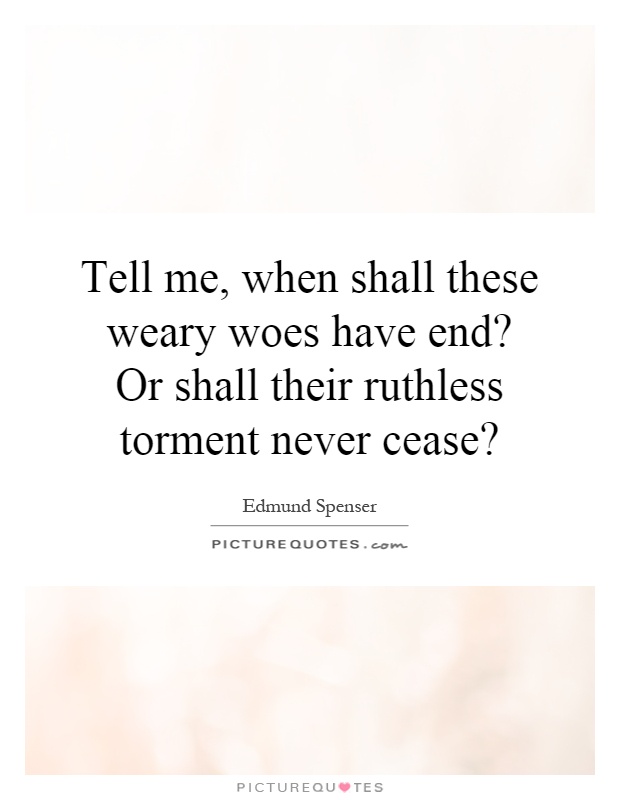Tell me, when shall these weary woes have end? Or shall their ruthless torment never cease?

Tell me, when shall these weary woes have end? Or shall their ruthless torment never cease?
The lines "Tell me, when shall these weary woes have end? Or shall their ruthless torment never cease?" are from Edmund Spenser's epic poem "The Faerie Queene." In this passage, the speaker is expressing his despair and frustration at the seemingly endless suffering and hardships he is facing. The use of the word "weary" conveys a sense of exhaustion and fatigue, while "ruthless torment" suggests a relentless and cruel ordeal.Spenser's work is known for its exploration of themes such as virtue, chivalry, and the struggle between good and evil. In this particular passage, the speaker's lament reflects the challenges and trials that the characters in the poem face as they strive to uphold their ideals and overcome obstacles.
The question posed by the speaker - "when shall these weary woes have end?" - speaks to a universal human experience of enduring hardship and seeking relief. The idea of suffering without respite is a common theme in literature and philosophy, reflecting the existential struggle of the human condition.
Spenser's use of language in these lines is evocative and powerful, capturing the emotional depth of the speaker's despair. The repetition of the word "shall" emphasizes the urgency and intensity of the speaker's plea for an end to his suffering.
Overall, this passage from "The Faerie Queene" encapsulates the timeless themes of struggle, endurance, and the quest for redemption. Through the speaker's poignant words, Spenser invites readers to reflect on the nature of suffering and the possibility of finding solace and resolution in the face of adversity.












 Friendship Quotes
Friendship Quotes Love Quotes
Love Quotes Life Quotes
Life Quotes Funny Quotes
Funny Quotes Motivational Quotes
Motivational Quotes Inspirational Quotes
Inspirational Quotes